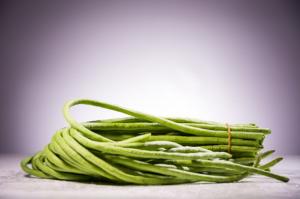Introduction
When it comes to caring for indoor plants, many enthusiasts often wonder whether they should use tap water or not. Tap water is readily available and convenient, but is it safe for your plants? In this article, we will discuss whether you should use tap water for watering indoor plants.
The benefits of tap water
Before we dive into the potential downsides of using tap water for your plants, let’s first consider the benefits. For starters, tap water is readily available and free. You don’t have to go out of your way to purchase water or spend money on expensive filtration systems. Additionally, some tap water contains minerals that can be beneficial for your plants, such as calcium and magnesium.
The potential downsides of tap water
While tap water has its benefits, it also has some downsides to consider. One of the main concerns is the presence of chlorine and other chemicals that may be harmful to your plants. Most municipalities add chlorine to tap water to kill harmful bacteria and viruses, but this can have a negative impact on your plant’s health over time. Chlorine can destroy beneficial soil bacteria, which can affect the overall health of your plant.
Another issue with tap water is the presence of heavy metals, such as lead and copper. These metals can be present in old plumbing systems and may leach into the water supply. Over time, these metals can build up in your plant’s soil and have a negative impact on its health.
How to make tap water safe for your plants
If you want to use tap water for your indoor plants, there are a few things you can do to make it safer. One option is to let the water sit out for at least 24 hours before using it. This allows the chlorine to evaporate, reducing its potential negative impact on your plants. You can also invest in a water filtration system that can remove harmful chemicals and heavy metals from your tap water.
Alternatives to tap water
If you’re still concerned about using tap water for your indoor plants, there are alternative options available. One option is to collect rainwater and use it for your plants. Rainwater is naturally free of chemicals and heavy metals, making it a safe option for plants. Another option is to purchase distilled or purified water from the store. While this can be more expensive than tap water, it may be worth it if you’re concerned about the quality of your tap water.
Conclusion
In conclusion, whether you should use tap water for watering your indoor plants depends on several factors. While tap water is convenient and free, it can contain chemicals and heavy metals that may be harmful to your plant’s health. There are ways to make tap water safer, such as letting it sit out or using a filtration system, but there are also alternative options available. Ultimately, the choice is up to you and what you feel is best for your plants.

 how many times do yo...
how many times do yo... how many planted tre...
how many planted tre... how many pine trees ...
how many pine trees ... how many pecan trees...
how many pecan trees... how many plants comp...
how many plants comp... how many plants can ...
how many plants can ... how many plants and ...
how many plants and ... how many pepper plan...
how many pepper plan...































